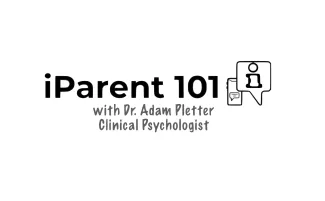
Parenting Through the Noise—Raising Resilient Kids in a Digital World Recap
As part of our ongoing SDA educational series, we were honored to welcome Dr. Adam Pletter, an internationally recognized child psychologist and founder of iParent101.com. His insights on parenting in the digital age were timely, practical, and eye-opening.
Whether you’re parenting under one roof, co-parenting across two homes, or somewhere in between, today’s digital landscape presents real challenges. This conversation offered research-backed strategies to help parents stay grounded and support their kids in developing healthier tech habits.
Key Takeaways:
- Teen brains are still under construction.
The prefrontal cortex—responsible for decision-making, impulse control, and emotional regulation—continues to develop into the mid-20s. That’s why kids need scaffolding and guidance, not just supervision.
- Parental controls are a start, not a solution.
Screen time settings can help, but nothing replaces the power of consistent, honest conversations. Trust and dialogue are essential for long-term emotional growth and self-regulation.
- Balance is an ongoing journey.
There’s no perfect system. Parenting in the digital world requires flexibility and constant adjustment as kids grow and change.
- Your habits shape theirs.
Children watch how we engage with technology. Being mindful of your own digital use is one of the most powerful things you can do as a parent.
- Co-parenting can be a superpower.
When both parents—whether in one home or two—align on expectations and values, kids benefit from greater structure, consistency, and emotional stability.
At SDA, we believe true empowerment means more than financial clarity. It’s about supporting the full picture of someone’s life—helping families balance wealth and health to create harmony.
To learn more about Dr. Pletter’s approach, visit iParent101.com, where you’ll find tools, insights, and group consultation options for parents looking to build stronger, more connected relationships with their kids.
Stay tuned for future conversations in our educational series. The more we understand, the better we can lead our families through the noise and toward a more resilient future.

